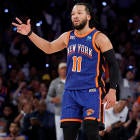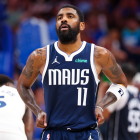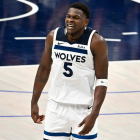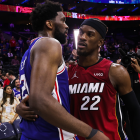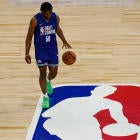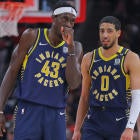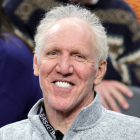A California appeals court on Monday rejected the National Basketball Players Association's appeal in former executive director Billy Hunter's lawsuit against the union, sending the matter back to a lower court where the two sides will battle over the validity of Hunter's contract, CBS Sports has learned.
The California Court of Appeal, Second Appellate District, disagreed with the Los Angeles Superior Court's reasons for allowing Hunter's wrongful termination lawsuit against the NBPA to continue. Nonetheless, the court rejected the union's appeal on its motion to dismiss, finding that the basis of Hunter's lawsuit did not arise from constitutionally protected activity.
In essence, the appeals court did not recognize the union's internal investigation of Hunter's activities as longtime NBPA executive director, conducted by attorney Ted Wells of subsequent "deflate-gate" fame, as rising to the level of an official government investigation. The appeals court did not consider the second prong of the NBPA's appeal -- that the 2010 extension of Hunter's employment contract was invalid -- and sent that matter back to LA Superior Court Judge Huey Cotton.
"Hunter’s disagreement with the NBPA is not protected activity," the appeals court wrote, in a ruling obtained by CBS Sports. "It is a garden-variety contract dispute."
In a statement to CBS Sports, Hunter, 72, said: "As I have said in my lawsuit all along, the union's termination of my contract was unlawful. The Court of Appeal's decision brings me one step closer to proving that fact."
NBPA general counsel Gary Kohlman, in a statement to CBS Sports, noted that the decision "specifically made no comment on the merit of Hunter's allegations."
"Given the multiple instances by Hunter of self-dealing and taking actions adverse to the best interests of the players' association, no one can reasonably dispute that the NBPA had both the justification and right to fire him as its executive director," Kohlman said. "We are confident that Hunter's lawsuit will ultimately be shown to be devoid of merit."
Hunter is seeking at least $10.5 million in salary and benefits owed him at the time of his termination in February 2013 after the damaging Wells report concluded that, while he hadn't committed any crimes, Hunter had not acted in the union's best interests as executive director.
The Wells report spawned a federal criminal investigation of Hunter's activities as the union's executive director. In November 2013, Joseph Lombardo -- whose firm, Prim Capital Corp., managed as much as $250 million for the NBPA -- pleaded guilty to trying to defraud the union of $3 million.
Hunter's son, Todd, was a vice president for Prim Capital. Neither man was charged in connection with the fraud.
In January 2014, Cotton denied the union's motion to dismiss Hunter's wrongful termination lawsuit, but dismissed all claims against then-union president Derek Fisher and his business manager, Jamie Wior. Hunter had alleged that the two had conspired to oust him as NBPA executive director after the 2011 lockout.
However, Cotton upheld Hunter's four claims against the NBPA, all related to his employment contract. Fisher, now head coach of the New York Knicks, and Wior, not currently working for Fisher, are no longer parties to the lawsuit.
The NBPA has argued that the 2010 extension of Hunter's employment contract -- approved by the union's executive committee and signed by Fisher -- was not valid or enforceable since the board of 30 player representatives never ratified it. That issue will now go back to LA Superior Court, where Hunter received a favorable ruling on that issue in January 2014.
"Hunter has demonstrated that he and the NBPA entered into a written employment agreement and that Fisher executed the 2010 extension as NBPA president," Cotton wrote in his 2014 ruling. "There is sufficient ... evidence to show that there is an enforceable contract between Hunter and the NBPA."
In July 2014, the union elected Washington, D.C., trial lawyer Michele Roberts to replace Hunter as executive director. Now, 16 months before either side can opt out of the last collective bargaining agreement that Hunter and then-commissioner David Stern negotiated, Roberts and her legal team must decide whether to go to trial, go to arbitration or negotiate a settlement with her predecessor over his contract.
In other words, the legal aftershocks of the 2011 NBA lockout continue to be felt.













